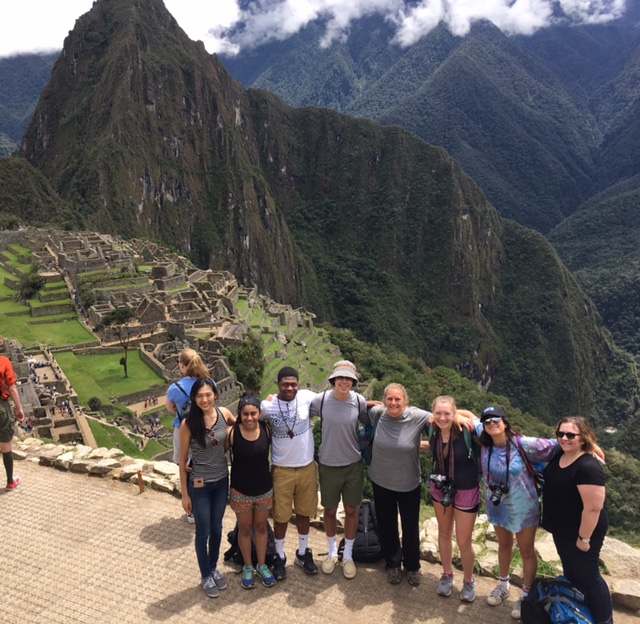Iolanda Volpe – World Languages
Climbing Machu Picchu with Global Student Leadership Summit. 2017
What is your favorite part of your job?
Getting to know students as individuals and watching them grow as learners! Other aspects of teaching that I find very rewarding include visiting classrooms and witnessing the interactions between my colleagues and their students as they learn about modern and ancient cultures and communicate using the target language. In addition, hearing students greet me in Spanish throughout the building or in Concord center is always a great reminder of why I love what I do. I feel very fortunate to work with CCHS students, they are enthusiastic language learners who always amaze me with their talents and generosity.
Why did you decide to teach Spanish?
My native language is Italian and I have always been curious about other languages. Learning English in my early teens was an impactful, formative experience that inspired me to learn and teach languages. I studied the Spanish language and the literature and cultures of the people who speak it because I was fascinated by the fact that Spanish is spoken by very different cultures in Europe and Latin America. I find that communicating in more that one language opens minds and hearts and I like to share this with my students. Furthermore, I like to remind them that all people have an innate desire to learn about each other, their similarities and differences, and languages help break the communication barriers.
How would you summarize your teaching philosophy?
I believe that all students benefit from high expectation in a positive, student-centered environment, an environment where students feel respected and valued for who they are. Everyone can learn more than one language. The experience of learning it may be different for each individual but the rewards are the same. I believe that the best teaching practices include making students aware of their own strengths, of how they learn and why the learning is relevant to them. My hope is to make my classroom a place where language students can take learning risks so they can become more proficient in Spanish and that this will increase their appreciation for other cultures.
Why did you become a teacher?
Teaching is an interdisciplinary endeavor and teaching world languages is inherently interdisciplinary. Being a teacher offers me the opportunity to share my passion for languages and for learning with others. In teaching world languages I am able to provide students with learning opportunities that can lead them to build bridges and minimize cultural and language divides. I enjoy seeing my students become more aware of their role as future world citizens. One thing I appreciate in my chosen profession is the opportunity to instill in my students a desire to know more about the world at large and encourage them to communicate with people, from near and far, who speak a different language and may have perspectives different from their own. Becoming a teacher has afforded me the privilege to do meaningful work every day, and it keeps me learning and growing professionally. It is a privilege that not all people find in their work.
What is a piece of advice you have for students at CC?
Take a deep breath and remind yourselves that each day you are growing and making progress towards your goals as a student and as an individual. Enjoy learning and focus on your day- to-day interactions with your teachers and your peers–they care about you! Finally, there is a place for everyone after high school!
Describe your teaching style.
I try to regularly incorporate humor and spontaneity in my teaching and I like to utilize my students’ ideas and suggestions in planning lessons. This a way to acknowledge students’ individuality and their awareness of what works for them. I find that getting to know my students helps me select a wide variety of effective teaching practices. I am willing to adjust a lesson as I teach it in order to keep it relevant and engaging for all students. I know that my students are engaged in learning when they feel comfortable taking risks with the language and are able to laugh at the inevitable mistakes that happen in the language learning process.

